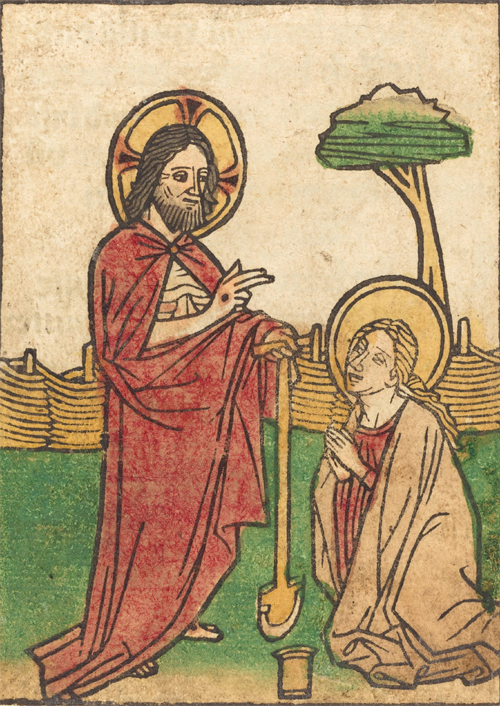Christian Art | Parables Of The Kingdom
Matthew 13: 18-23 – Week 16 Ordinary Time, Friday (King James Audio Bible KJV, Spoken Word)
18 ¶ Hear ye therefore the parable of the sower.
19 When any one heareth the word of the kingdom, and understandeth it not, then cometh the wicked one, and catcheth away that which was sown in his heart. This is he which received seed by the way side.
20 But he that received the seed into stony places, the same is he that heareth the word, and anon with joy receiveth it;
21 Yet hath he not root in himself, but dureth for a while: for when tribulation or persecution ariseth because of the word, by and by he is offended.
22 He also that received seed among the thorns is he that heareth the word; and the care of this world, and the deceitfulness of riches, choke the word, and he becometh unfruitful.
23 But he that received seed into the good ground is he that heareth the word, and understandeth it; which also beareth fruit, and bringeth forth, some an hundredfold, some sixty, some thirty.
Jesus contrasts those who are ready in their hearts to receive the Word of God with those for whom the Word remains obscured. A body of disciples, followers and believers, has begun to form around Jesus. These are they who have understanding, not particularly in an intellectual fashion, but rather because they are lovingly receptive, whereas lack of love opens the door of the soul to the devil. Jesus’ disciples are disposed to conversion, to permit God’s grace to transform their lives. We understand in these verses a contrast between Christian faith and lack of faith.
We may think of the first class people as of those who encounter the teachings of Jesus, and representations of Jesus, and yet they are dead to the Word. A seed was sown within them, at their very conception, and yet they do not respond to God as a beautiful part of God’s creation. We can ask why it is that people become numb to faith, especially as our experience may well suggest that we are born to be with faith. How, as people grow toward adulthood, have they become so numbed? What has happened to atrophy their spiritual sense? We may think of the ways in which a young person’s experience may have left that person vulnerable to Satan.
It may seem strange to think of those who at first respond with great joy to the message of the Kingdom come and who then are distracted and do not retain the knowledge of God’s mercy. How, when we have experienced God’s love, do we then fall away? Of course we do. We promise we will not sin any more, and then we do, and we need to acknowledge our sins once more and ask for God’s mercy. It is not easy to do this. Perhaps, as we confess our sins, each time this confession deepens our own soil, like a fall of leaves in a woodland, each year deepening the bed of soil. Perhaps we think of our own first enthusiasms when we first heard about Jesus, and now we know there are times when considerable effort is called for to keep ourselves fertile for God’s Word. There is an inward effort entailed in Christian faith.
Jesus warns us also about the deceitfulness of riches and the cares of this world. Can we be with God when so much calls us away from God? There are so many easy pleasures. In some ways, every Christian must take a vow of poverty, to stand at a certain remove from the constant temptation of easy pleasures, which provide instant gratification and yet destroy us spiritually. We might think of a person who has drunk too much, or taken some other drug, or who is inflamed with love of money and all the goods and services money can buy, and we might think of the wall such things build between ourselves and God. We can be torn away from reality by the things we buy and consume. Our riches can be thorns, which choke the Word.
We pray that we may be good, fertile ground, receptive to Jesus. We pray that God’s Word may take root in our hearts, our minds, our souls. And so may we be fruitful, sharing the joy of the reality of God with many, evangelizing, spreading the Word.
Concluding Prayer
Lord Jesus Christ,
who on the cross called the penitent thief into your kingdom,
in faith and trust and confessing our sins
we implore your mercy
that after our death
you will lead us rejoicing through the gates of paradise.
Who live and reign for ever and ever. Amen.
![]()
King James Audio Bible | Endnotes
Jesus’ Parables Of The Kingdom
The Parable of the Sower and the Parable of the Prodigal Son, two of the most well-known parables of Jesus, hold a significant place in the teachings of Christianity and continue to offer important lessons for Christians today.
The Parable of the Sower, found in Matthew 13:18-23 and Mark 4:2-9, teaches about the different ways in which people receive the word of God. In this parable, Jesus compares the Kingdom of Heaven to a farmer who sows seed on different types of soil, with varying results. This parable is often interpreted as a lesson on the different dispositions of heart of people and the way they receive the Gospel message. The seed that falls on good soil represents the word of God that is received with faith and produces a bountiful harvest, while the seed that falls on rocky or thorny soil represents those who receive the message but are unable to fully embrace it due to worldly concerns or temptations.
The Church of Jesus Christ teaches that faith in Jesus and acceptance of his message is essential for salvation and a path to Heaven. Our Christian gifts recall and are enabled by the love and sacrifice of Jesus. Christian prayer is an important part of a faithful life and can help deepen relationship with God.
The Parable of the Prodigal Son, found in Luke 15:11-32, teaches about the transformative power of repentance and the love and grace of God. In this parable, a son leaves his father to squander his inheritance, but after realizing his mistake, returns to his father and is received with open arms. The father in this parable represents God’s love and grace, and the prodigal son’s return symbolizes the transformative power of repentance and acceptance of God’s love.
Both parables illustrate the importance of having a receptive heart and the transformative power of God’s love and grace. They serve as reminders that no matter how far we have strayed, God is always ready to welcome us back and help us grow in our faith. Through the Parable of the Sower, Jesus teaches about the varying ways in which people receive the gospel message, and the importance of having a receptive heart. The Parable of the Prodigal Son teaches about the transformative power of repentance and the love and grace of God.
In the Sermon on the Mount, Jesus teaches the importance of growth and development in our spiritual lives, and the need to continually seek to deepen our relationship with God. A further understanding of the meaning of parables is that within the context of engagement with the parables we are present with Jesus in the Garden of Gethsemane – toward crucifixion of Jesus and hence redemption.








